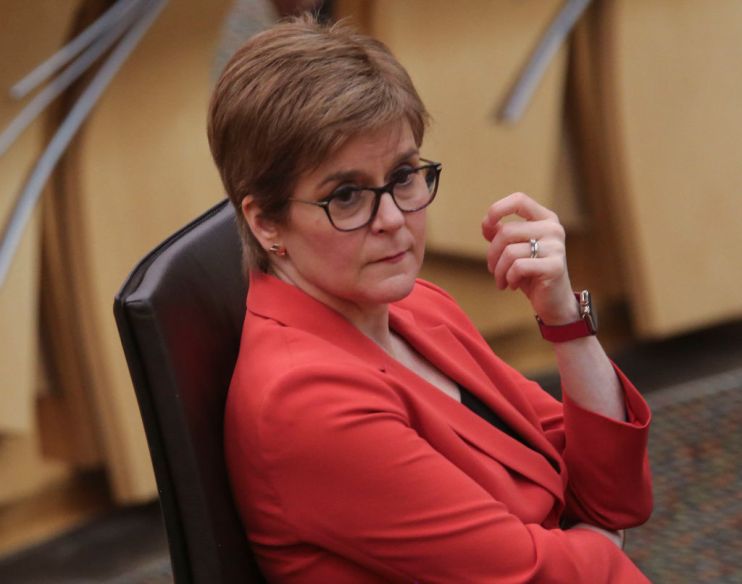Boris must find the bandwidth to take on Sturgeon – and keep the UK united

Being prime minister is not an easy job.
Whether you adopt the approach of Thatcher’s four-hours-a-night, or Macmillan’s retreating to Trollope novels at moments of extreme stress, it is a position which occupies your every waking (and probably many a sleeping) moment; the situation is not helped by the fact that the vast majority of prime ministers live ‘above the shop’ in the apartment complex of 10-11 Downing Street. Time to think can be at a premium.
Boris Johnson is certainly not short of challenges to which he could devote his brain power.
Read more: Hancock expects UK to be out of the pandemic by spring
Covid and Brexit are the two most obvious and pressing matters, but one could easily add the “levelling up” agenda, HS2, the grievous state of the hospitality industry, repayment of the national debt, the examination system in schools, NHS shortages and law and order, and that would be the in-tray only half full.
Being leader of the opposition is a very different matter. The effective levers in your hands are virtually none, especially when you face a government with a healthy parliamentary majority early in the electoral cycle, and if you are not to be wholly reactive (“We think the government should have gone further…”) then thinking is one of the few things to which you can devote a lot of time.
Just before Christmas, Sir Keir Starmer made a “major” speech on devolution and the Union.
This is the sort of parlour game into which opposition leaders are forced; those who occupy the territory willingly are political oddballs and often Liberal Democrats. The content of the speech promised a commission to examine the devolution of power, advised by former prime minister Gordon Brown.
While this is not a move which will capture the imagination on voters’ doorsteps, it is a sensible and grown-up response to the persistent popularity of the SNP in Scotland and the inexplicable perception that the first minister, Nicola Sturgeon, has handled the Covid crisis well.
A recent poll showed support for Scotland’s secession from the Union at 58%, which would be a comfortable plurality at a referendum.
This is literally an existential threat to the UK: from a business point of view, secession would mean the United Kingdom losing the human capital of 5.5 million people, access to the oil and gas reserves of the North Sea, an enormous potential source of tidal and wind energy and the huge financial services sector in Edinburgh, apart from anything else. It is by no means unrealistic to imagine an independent Scotland by 2030: the government must address this.
What must worry unionists is that Boris Johnson, personally and institutionally, simply does not have the bandwidth to take the fight to the nationalists at the present time. It is often suggested that Johnson, for all his mixed heritage an ineffably English figure, is ill-suited to woo a truculent Scottish electorate.
Read more: Scottish independence would be nothing but a disaster
But if not him, then who? The Labour Party lost its relevance in Scottish politics with its Westminster annihilation in 2015, and its Holyrood leader, Richard Leonard, is the sort of man who is forgettable to his own memory foam mattress. The Liberal Democrats are a harmless fringe. Faute de mieux, the battle for the Union must be an SNP/Conservative fight.
But who is going to stand in the front line? The Scottish secretary, Alister Jack, is a landowner who looks like a refugee from a late-stage Macmillan cabinet; Baroness Davidson (as she will become) is a proven vote-winner but is only standing in at Holyrood until next May; the Scottish leader, Douglas Ross, is accident-prone and yet to find an authentic voice which resonates with the electorate north of the border.
The prime minister needs help. He needs some heavyweight unionist figures (who need not necessarily be Conservatives); he needs an ultra-smooth and highly responsive media team; and he needs some enormous brains to sit in darkened rooms and find the arguments against secession which will strike a chord with the voters.
The second and third categories should not be impossible to satisfy. The first, the cheerleaders, may prove more difficult. If anyone has any ideas, the address is 10 Downing Street, London SW1A…